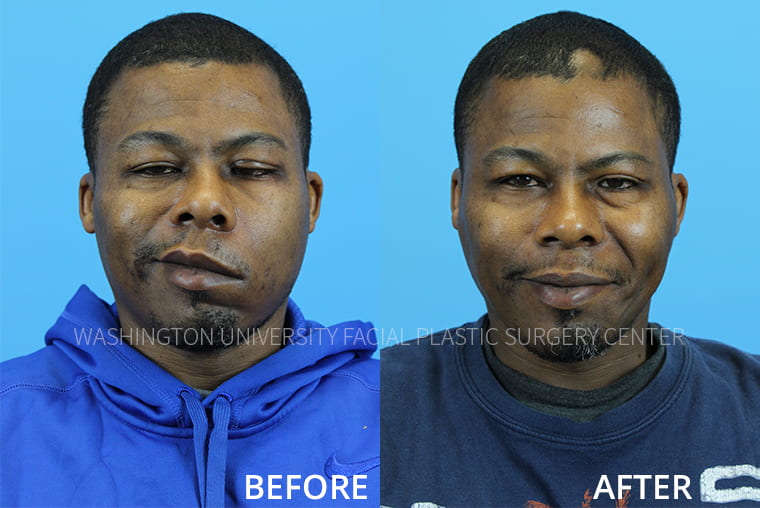Checking Out the Emotional and Social Factors That Drive Individuals to Take Into Consideration Plastic Surgery as a Means of Enhancement
The choice to pursue cosmetic surgical procedure often expands beyond mere appearances, linking with social and emotional dynamics that merit detailed assessment. Factors such as self-worth, pervasive social appeal standards, and the pervasive impact of social media assemble to shape individual inspirations for medical improvement.
The Function of Self-worth
Self-esteem substantially affects a person's decision to seek cosmetic surgical treatment. Individuals with reduced self-worth typically regard themselves in an adverse light, leading to sensations of insufficiency concerning their physical appearance.

Ultimately, the role of self-esteem in the decision-making process relating to plastic surgery highlights the complicated interaction in between body photo, individual fulfillment, and psychological wellness. Comprehending this partnership is vital for medical care specialists to make sure that people are making notified decisions rooted in realistic assumptions and emotional well-being.
Social Charm Standards
Influenced by pervasive media representations and social narratives, societal elegance standards play a critical role fit individuals' assumptions of their own bodies. These criteria are usually identified by an idealized kind of appeal that stresses traits such as balance, slimness, and youthful vigor. As these perfects are bolstered with different networks, consisting of movie, advertising and marketing, and tv, individuals regularly internalize these messages, causing frustration with their natural look.
The ramifications of these social norms prolong beyond visual choices; they can impact self-esteem, psychological wellness, and social relationships. People that view themselves as disappointing these criteria may experience feelings of inadequacy, motivating a desire for plastic surgery as a way of achieving social authorization. This pursuit is frequently sustained by the idea that adhering to these perfects will certainly improve not just physical look but additionally social standing and personal satisfaction.

Influence of Social Media
The influence of social appeal standards is more amplified by the increase of social media sites systems, where curated images and idyllic depictions of charm are ubiquitous. Customers are constantly exposed to filtered and modified photos, which commonly depict unattainable physical attributes. This exposure cultivates a culture of contrast, leading people to examine their own appearance against these frequently unrealistic standards.
Social media site influencers and celebs frequently promote aesthetic procedures, stabilizing the concept that medical enhancements are a viable methods for accomplishing societal suitables (plastic surgery rancho cucamonga). The visibility of these enhancements can develop an assumption that going through plastic surgery is a common practice, consequently affecting individuals to think about comparable interventions as a path to enhanced self-confidence and social acceptance
Moreover, the interactive nature of social media sites enables prompt comments via likes and comments, even more strengthening the wish to comply with preferred charm requirements. Such interactions can aggravate feelings of inadequacy and drive individuals toward cosmetic surgery as a method of getting validation. Eventually, from this source social networks plays an essential function fit perceptions of appeal, which substantially influences the decision-making processes surrounding plastic surgery.

Cultural Perspectives on Look
Across numerous cultures, perceptions of appearance are deeply rooted in historic, social, and financial contexts, forming people' sights on charm and desirability. In several societies, look offers as a considerable pen of identity, influencing social condition, specialist opportunities, and individual relationships. For instance, in some societies, light skin is frequently connected with riches and benefit, while others might idealize darker skin tones as symbols of strength and credibility.
Moreover, standard elegance criteria are frequently bolstered through social narratives, media representations, and family members affects, resulting in differing ideals across various regions (plastic surgery rancho cucamonga). In Western cultures, the emphasis on youth and physical conditioning commonly drives people toward aesthetic improvement, while in particular Eastern societies, even more refined modifications straightened with conventional visual appeals may be favored
Globalization and the proliferation of electronic media have actually even more complicated these characteristics, producing a hybridization of elegance perfects that transcends geographical boundaries. As people increasingly navigate these social narratives, the stress to satisfy particular look requirements can cause the need for cosmetic surgery, reflecting a complicated interaction of personal aspirations and her response cultural values. Comprehending these social viewpoints is crucial in attending to the inspirations behind plastic surgery factors to consider.
Mental Impacts of Cosmetic Surgical Treatment
Several people seeking cosmetic surgery record experiencing profound psychological impacts that can significantly alter their self-perception and psychological well-being - plastic surgery rancho cucamonga. The desire for physical enhancement commonly stems from underlying problems such as reduced self-esteem, body dysmorphic problem, or social stress regarding charm criteria. For some, the prompt post-operative phase can bring about a short-term boost in self-esteem and contentment with their look, fostering a feeling of empowerment
Nevertheless, these favorable sensations may not be withstanding. Study indicates that while some patients experience boosted self-esteem, others may face elevated anxiousness or anxiety if their expectations are not fulfilled. This inconsistency can occur from unrealistic ideals perpetuated read this article by media representation and social narratives bordering elegance.
Furthermore, the mental implications of cosmetic surgery extend beyond the individual. Relationships with friends and family might be stressed as social dynamics shift, resulting in sensations of isolation or alienation. Ultimately, the emotional impacts of cosmetic surgery are intricate and diverse, calling for mindful consideration by both potential clients and doctor to ensure informed decision-making and reasonable expectations.
Final Thought
In conclusion, the choice to seek plastic surgery is substantially influenced by a mix of self-worth issues, social elegance standards, and cultural point of views on look. The pervasive reach of social networks even more exacerbates these stress, advertising unrealistic perfects that people typically strive to attain. Comprehending these social and emotional aspects is essential for dealing with the inspirations behind plastic surgery, highlighting the requirement for a more nuanced discussion surrounding appeal and self-acceptance in modern culture.
The choice to seek cosmetic surgery commonly expands beyond simple visual appeals, intertwining with mental and social dynamics that merit comprehensive examination. Inevitably, social media plays an essential role in forming understandings of charm, which significantly influences the decision-making procedures surrounding cosmetic surgery.
As individuals progressively navigate these cultural narratives, the pressure to conform to particular appearance requirements can lead to the desire for cosmetic surgical treatment, showing an intricate interaction of individual ambitions and cultural values.In verdict, the choice to go after cosmetic surgical treatment is considerably affected by a mix of self-esteem problems, social charm requirements, and cultural perspectives on look. Understanding these mental and social elements is important for attending to the motivations behind cosmetic surgery, highlighting the requirement for a much more nuanced conversation bordering charm and self-acceptance in modern society.
 Tatyana Ali Then & Now!
Tatyana Ali Then & Now! Bug Hall Then & Now!
Bug Hall Then & Now! Hailie Jade Scott Mathers Then & Now!
Hailie Jade Scott Mathers Then & Now! Kelly Le Brock Then & Now!
Kelly Le Brock Then & Now! Bill Cosby Then & Now!
Bill Cosby Then & Now!